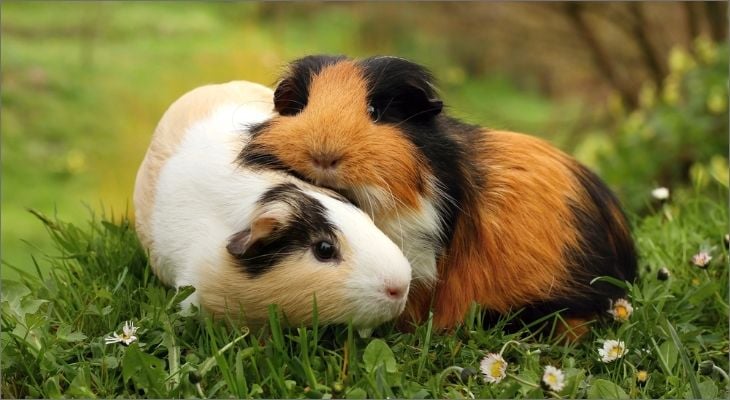
Curious and inquisitive by nature, guinea pigs make great pets. These little bundles of fur are quite social and enjoy spending time with the people who handle, feed, and groom them. As a pet, guinea pigs are relatively low maintenance, rarely aggressive, and fun to own.
How to Care
Guinea pigs are playful, especially during the morning and late evening hours. These guys like to nap a lot during the day. You'll want to make sure your pet is getting plenty of exercise and interaction with your family to ensure good health.
Your guinea pig will spend most of its time in a plastic or wire cage. The cage needs to be bigger than you might think -- 7.5 square feet for one guinea pig and 10.5 square feet for two is ideal. A solid floor is better than a wire floor. Your veterinary team often sees guinea pigs with broken feet and legs caused by wire cage floors. Regardless of the floor, be sure to use soft bedding like fleece or flannel as guinea pigs can develop sores on their feet.
Some guinea pig breeds require more grooming than others. For example, a silkie has longer hair that needs to be brushed quite often. You may want to bathe your guinea pig occasionally, especially if he or she isn't doing the job adequately.
Training
Guinea pigs can be trained to follow simple commands, especially if you use food as a prompt. They can be taught to come to you or to sit up and beg. Some guinea pigs can be taught to use a litter box, but they're not always consistent so don't rely on this method. Guinea pigs drink from a water bottle attached to the side of his cage, but some can be trained to drink from a bowl.
Health
Your guinea pig will not need to be spayed or neutered unless you plan to house a male and a female together. If so, our team can advise you on this procedure.
Diet
Guinea pigs are herbivores who eat a plant-based diet. Feed a commercial pellet food to ensure your pet gets the vitamin C it needs. It is also recommended to supplement your guinea pig's diet with grass, hay, or leafy greens like green leaf lettuce. Avoid kale and spinach as dark greens have too much calcium for guinea pigs.
